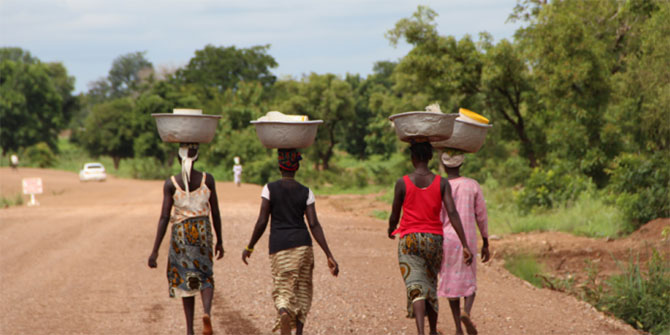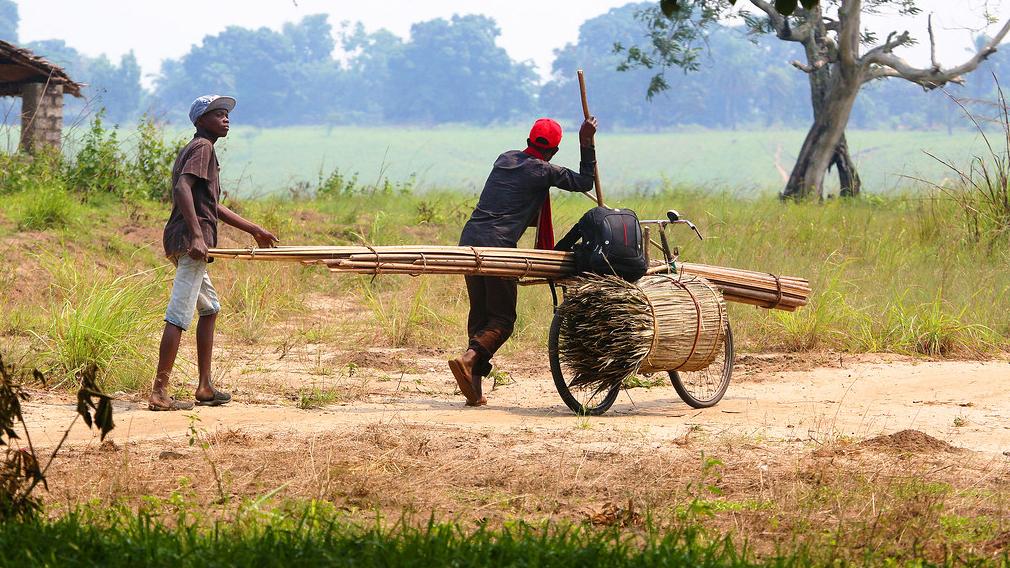Despite the potential for Mass Drug Administration to reduce mortality from schistosomiasis and other diseases in Uganda, research shows that current programmes alone are insufficient to prevent infection among children. To meet our global commitments, Bono Ozunga argues we need to rethink the role played by health education and drug distributors in treatments.
Schistosomiasis, also known as Bilharzia, has long been recognised among major health problems causing death and low worker productivity in Africa. Until recently, there have been no National Bilharzia Control Programmes in most African countries. In Uganda, for example, the Mass Drug Administration (MDA) programme was launched in 2003 with children the main target.
The idea of treating school-aged children derived from a finding that early treatment reduces infection and mortality, and that children will swallow the drugs. In practice, however, there are challenges involved in reaping significant benefits from such a strategy. Here I assess these challenges with reference to Uganda, and the specific difficulties that have arisen in the northwest of the country.
Strategy and management
MDA is managed at the National level by the Vector Control Department, Ministry of Health. Below this is the District Vector Control Officer (DVCO), who develops action plans for respective districts.
These officers are mandated to lobby for local support for the programme, sensitise the community about the disease and benefits of repeated treatment, create a conducive environment for people to demand treatment and establish monitoring plans for easy tracking of progress. Unfortunately, there is general lack of appropriate guidelines for behavioural change promotion and, as a result, the health education provided is both inadequate and inappropriate.
In addition, a World Health Organisation report (2010) emphasises the need for integration of MDA with health systems, so as to ensure that the treatment of infected children is continuous over the year, rather than the current policy of once a year.
Drug Distributors (DDs)
Drug Distributors are appointed by Sub-county Health Officials and trained by the District Vector Control Officer on treatment procedures, drug accountability, book and record keeping. They are also encouraged to voluntarily ‘serve’ their communities.
They move from household to household or class to class (for school children), distributing tablets and recording in the Drug Register Book (DRB) persons who have received the tablets.
Oftentimes, these Drug Distributors have raised concerns about the administration of drugs being time consuming, and asked to be compensated financially. However, to date, nothing has been resolved, and the DDs are now accused of stealing drugs that they later sell to local drug shop owners, recording ‘ghost’ names on the DRB (usually for accountability purpose).
Drug uptake
According to my own research, in 2014 34 per cent of children sampled in Panyimur, northwest Uganda, confirmed having swallowed Praziquantel (an ideal drug for treatment of Bilharzia). Inadequate dissemination of knowledge about MDA and a poor attitude of children towards the drugs were the main reasons for low drug uptake. Children, for example, believed that Praziquantel is a strong drug with diverse side effects.
However, the research also revealed that parental attitudes influenced whether or not children were willing to swallow the tablets. This finding suggests that drug uptake could be improved with greater participation of parents.
Yet the vertical approach under which MDA operates lacks the capacity to change the attitudes of children and their parents and, if that continues, the whole programme risks damaging effective delivery of health care services.
Health education
To analyse the extent to which children use in practice the knowledge gained from health education, researchers asked whether they still entered the Albert Lake – believed to be infected with Bilharzia.
Responses confirm widespread knowledge that bilharzia is transmitted in contaminated water. In fact, the results show that the frequency of children coming into contact with contaminated water changed depending on their proximity to the lake and the size and status of their family. Equally interesting is the finding that parents do not stop their children from collecting water (mainly for domestic use) from the lake, even though they know it is infected with bilharzia.
Such a finding not only questions the effectiveness of health education but also challenges emphasises on MDA with praziquantel at the expense of other approaches to control Bilharzia. More so, the research reveals that while praziquantel may be helpful in reducing morbidity, as well as the intensity and prevalence of bilharzia, it may not successfully control Bilharzia among children in Panyimur if there is also no access to clean water sources and sanitation, and appropriate health education. Panyimur, like other rural places in Uganda, is burdened by insufficient clean water supply. As a result, children as young as four years come into contact with the lake, and so there is continuous cycle of infection and reinfection.
Similarly, this finding illustrates the need to take advantage of the latest international impetus for improvement in water and sanitation as the fundamental measure to control NTDs.
While MDA has the potential to reduce mortality and morbidity from schistosomiasis, this research indicates that it is unrealistic to assume that MDA alone is sufficient among children in Panyimur. The MDA programme is marred by inappropriate messages, unmotivated health educators and drug distributors and acute disengagement with both the target audience and the health care system. Consequently, it is understandable that so many children and adults feel they have little to gain from an MDA programme that refuses to acknowledge and engage with their on-going vulnerability to infection and reinfection. And if that remains the case, the opportunity afforded by the global commitments to deal with NTDs will tragically be wasted.
Photo Credit: RTI International/Sam Phelps (CC BY-NC-ND 2.0)






Thanks Bonus emerald for the work. This is insightful and findings truely relate to what is on ground concerning MDA for Bilharzia and it’s burden to the communities.
Thanks
Thanks Noah for the comment